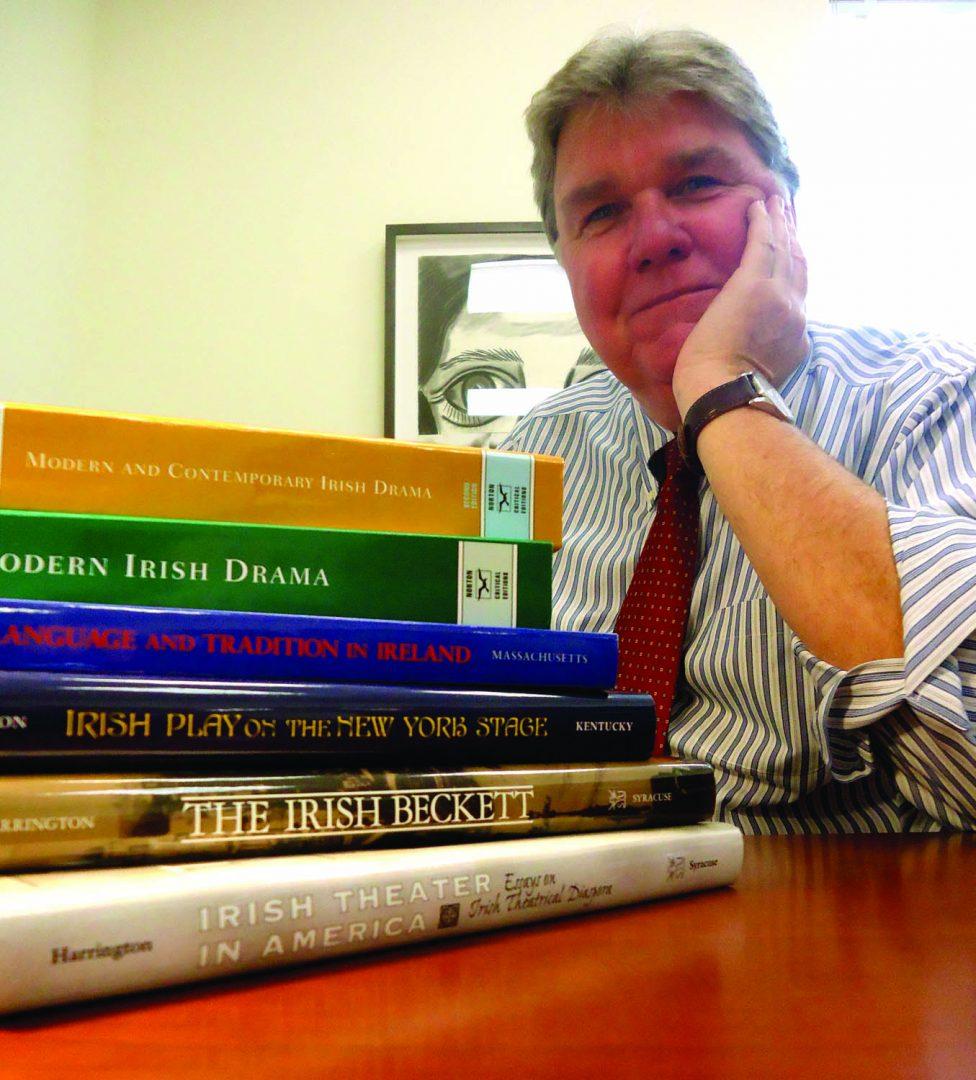Professor Responds to Ireland’s Change of Heart With Vatican
October 5, 2011
Ireland’s reaction to the discovery of child abuse under the Catholic Church led many to question the role of religion in Ireland. The Fordham Observer spoke with John Harrington about this controversy.

Harrington, a professor of English and dean of the Faculty of Arts and Sciences at Fordham, said that he believes Ireland lacks the concept of separation of church and state so the solution they come up with will be joined between the Vatican and the country.
Harrington is well-known for his involvement with Irish Studies at Fordham University and is a playwrite for works such as “The Irish Play” on the New York Stage and “The Irish Beckett.” He also holds lectures about his work in places like the Dublin Theatre and the Guggenheim Museum. Prior to working at Fordham, Harrington studied at Columbia University and the University College at Dublin.
According to the New York Times article entitled “Rupture With Vatican Reveals a Changed Ireland,” Ireland, a nation rooted with Catholic teachings, laws and practices embedded in the religion, will soon see a new head of the church. Discoveries of decades of abuse of children under the church’s care threatened the role of the Vatican in the Catholic Church to comply with the government.
The Cloyne Report mentioned both abuse and cover-ups made by officials of the church in 2009. According to Enda Kenny, Prime Minister of Ireland, “A report into child sexual abuse exposed an attempt by the Holy See to frustrate an inquiry into a sovereign, democratic republic as little as three years ago.” The report’s stated that instead of handling the situation responsibly, the church allowed the bishops to not take into account child-protection guidelines.
Patsy McGarry, the religious affairs correspondent for The Irish Times said, “The obsequiousness of the Irish state toward the Vatican is gone. The deference is gone.” The church denied the allegations made by both Kenny and the Cloyne Report claiming it to be “misrepresented.”
The New York Times reported that the government will introduce “a package of new legislation to protect children from abuse and neglect, including a law…that would make it mandatory to report evidence of crimes to the authorities.” In addition, the government established a group that will examine how half of the country’s Catholic primary schools will be removed from church control. This will reduce both the power and the role of the church, where government involvement will now take into effect.
Observer: Do you think there will be changes in this identification that will predominantly impact Ireland and its role in Catholicism?
John Harrington: “Ireland is changing in very big ways in any case and the larger part of this story is that since 1990s Ireland has been through disillusioning cultural experiences and one had to deal with scandal of politicians and after that the scandal with banking industries and then reports of church organizations. There is a very large process of change in Ireland. They are going through a major identity crisis.”
Observer: Do you think there should be other alternatives besides having the government get involved with the church to resolve the issue of child abuse? Do you think it’s too extreme? Why not replace the officials and closely monitor them?
JH: “A lot of parties are working hard to determine future steps. There will be changes about what the abuses were. It has to be decided jointly by the government and the church and all indication now is coming with new kinds of ways to prevent abuses whether they are political or not.”
Observer: How do you think this will impact the role of the church and the Vatican ultimately? Do you think it will diminish?
JH: “It has not been decided as to what the government is doing. The prime minister made an angry speech from the house of parliament and after that the Vatican withdrew and it questioned some of the assertion the prime minister made and now the prime minister is researching for what was said and we are waiting for the next step.”
Observer: Do you think this will lead to changes in the church that favors the government or that the government is just taking advantage of the whole situation to do as they please?
JH: “The issue being discussed is going to be discussed in both spiritual and temporal powers. How are they going to intersect is what is going to have to be decided jointly. Ireland has no concept of separation of church and state like America, so they have to come with a joint solution. Historically, in the mid-20th century Ireland saw more involvement by church and revised their constitutions in ways that revolved around the Vatican and now it’s surprising that they are talking about diminishing it.”
Observer: How do you think faculty at Fordham would respond to this or view this? How do you feel this will impact Ireland?
JH: “Fordham is one of best place to study religious history; the Fordham theology department is interested in watching this not exclusively in Ireland because there was a lot of international behavior of the church in past that have to be documented. We have terrific record in American Catholic studies and we should be aware that it is not only occurring in Ireland. We have to look at international context and not only Ireland context.”









